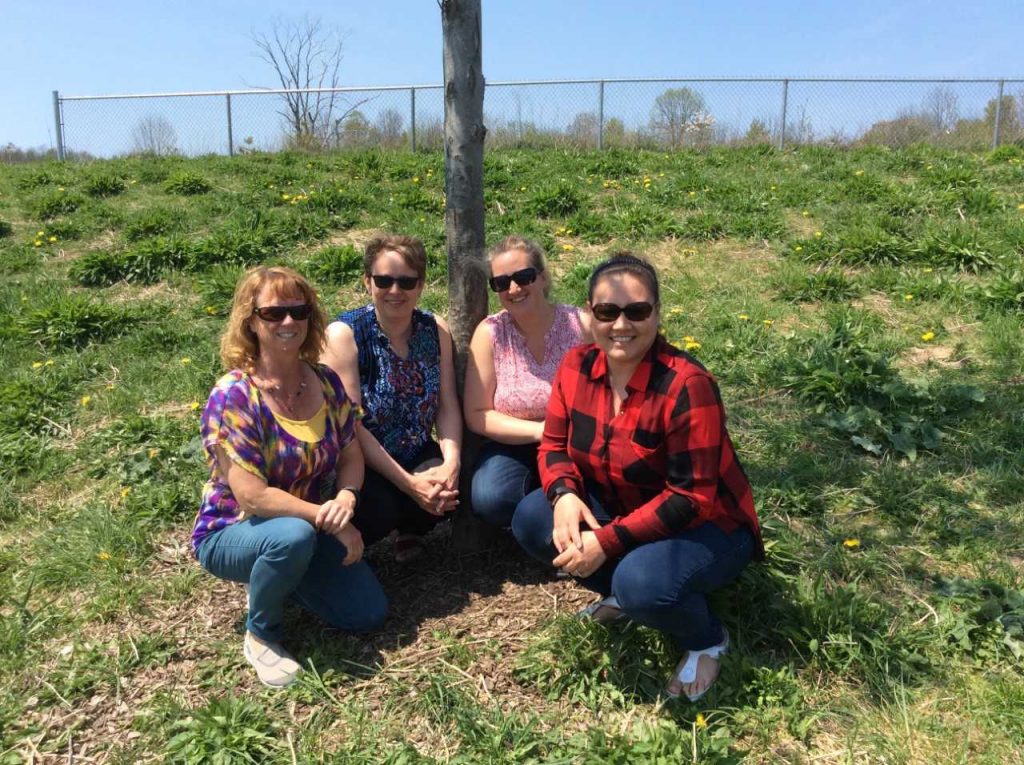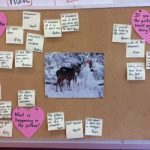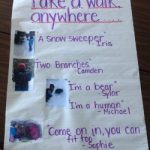We are the FDK teams from our small school based on the Bruce Peninsula. We propose to work together to increase inquiry-based learning within our respective classrooms through learning from the resources we have selected. We will participate in a book study of the two resources as well as a monthly half-day session where we can share our successes and challenges and assist each other to name the learning that is happening from our documentation. We plan to increase our comfort level with this type of teaching and learning and to look for those teachable moments within student play. By the end of this project, we hope to have realized new ways to cover the kindergarten expectations through inquiry-based teaching rather than traditional methods (e.g., carpet time, whole group lessons, worksheets).
Team Members
Becky Madill
Bluewater District School Board
Wendy Barker
Bluewater District School Board
Melissa Boswell
Bluewater District School Board
Amanda Cunningham
Bluewater District School Board
Team Photo

Professional Learning Goals
- Increased the ability of each FDK team to prepare and follow through on inquiry-based teaching and learning that comes from the interests of our students
- Increased our ability to “name the learning” that is occurring within these inquiries based on the Ontario Kindergarten Program expectations
- Increased our ability (and that of our students) to ask better questions to deepen our understanding of an inquiry
Activities and Resources
We met monthly as a team and started with the resource THINQ Kindergarten as our first book study followed by STEM Play. We read the beginning chapter together and summarized, and then each team member chose a chapter to read and summarize for the next month’s meeting. We also chose a new provocation idea from the resource to try out for the month and then share our documentation the following month. One of the next steps we determined was the need to post learning goals and success criteria within our classrooms, but using age-appropriate wording. As a team, we created “I can” statements to be used in various areas throughout the classroom (e.g., ” I can print my name” or “I can zip my zipper”). As the project progressed, we began differentiated learning groups during our shared outdoor learning time which involved students from both classes engaging with all of the team members. We also provided students with the opportunity to choose for themselves which outdoor learning experiences to take part in. For example, students could choose to go to the outdoor learning/bush area or stay with the outdoor riding toys and sandbox area.
Unexpected Challenges
We found the resource STEM Play to not be as relevant and helpful as we had anticipated. The information in the chapter summaries was useful but the actual activities seemed more “theme-based” rather than inquiry-based.
Enhancing Student Learning and Development
We started the year as two separate, boy-heavy and young classrooms. We ended as one blended program with students interacting and engaging with all members of the FDK teams and each other interchangeably. Our students increased their focus, stamina, perseverance and imaginative play in a variety of settings including classrooms, outdoor learning area, gym time, and snow day groupings. As a result of the productive team meetings, we feel we were able to lead by example for our students. An unexpected big idea of teamwork developed throughout the year and is prevalent in both classrooms. The students were able to identify their own examples of teamwork both inside and outside the classroom. We can see growth in all of our students. The students were able to take ownership of their learning through student choice of activities inside and outside. We also are proud of the increase in age-appropriate risk-taking during our outdoor explorations times in the bush, as well as oral communication in front of peers and adults.
Sharing
We are going to present our project details and findings at the June staff meeting at our school. We have been sharing our successes informally with staff through conversations mainly about the outdoor learning that our classes have been engaged in.
Project Evaluation
We feel that our project was a great success both for the students and the FDK team members. The release time was invaluable in terms of allowing us to delve into the resources and attempt new provocations and strategies both inside and outside the classroom. This project also provided us with the time to revisit ideas we had learned in the past as well as a new focus on the environment as the third teacher. Both FDK teams made various changes to classroom setup throughout the year which were beneficial to increasing classroom engagement.
Resources Used
STEM Play: Integrating Inquiry into Learning Centers
ISBN 9780876594025
Deirdre Englehart, Debby Mitchell, Junie Albers-Biddle, Kelly Jennings-Towle and Marnie Forestieri
THINQ Kindergarten: Inquiry-Based Learning in the Kindergarten Classroom
ISBN 978-0-9950018-2-4
Jill Colyer, Joan Reimer, Deb Watters and Jennifer Watt
Resources Created
These resources will open in your browser in a new tab, or be downloaded to your computer.






